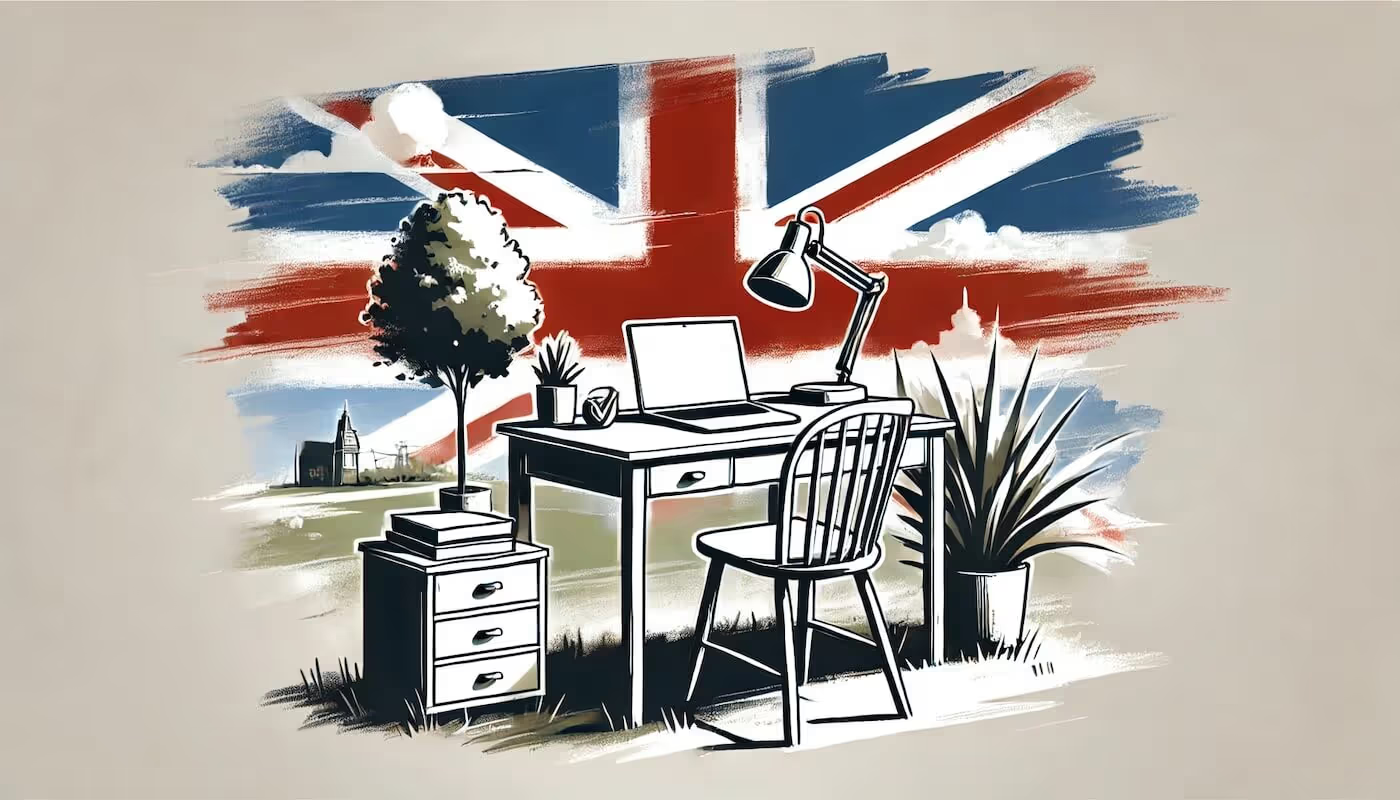
Mastering Intrapersonal Skills: The Complete Guide (2024)
The synergy between increasing mental health awareness, mindfulness, and effective intrapersonal assessment is something critical for our overall well-being and success. Here, you can learn practical strategies to balance these, boosting your personal and professional development.
Staying mindful within the constantly changing dynamics of professionalism is something I see as essential. One thing in particular is our ability to stay level-headed and present in our own thoughts, and although there has been a notable increase in awareness around mental health and the necessity to stay kind to our minds, we must help ourselves too with mindfulness. This all culminates in our ability to evolve our professional and personal development, and the one niche I want to focus on today is intrapersonal skills, which have emerged as a cornerstone for success and well-being. In 2024, understanding that these skills are more vital than ever is something that can give us a real boost, especially when we combine that with a newfound ability to master the skills! Therefore, this comprehensive guide will go deep into what intrapersonal skills really mean, what they entail, how they differ from interpersonal skills, and practical ways for you to go away and develop them.
1. What are Intrapersonal Skills?
Intrapersonal skills are the capabilities and strengths pertaining to the internal dialogue and interaction one has with oneself. They encompass a range of abilities, from self-awareness and introspection to emotional intelligence and self-regulation. In essence, these skills dictate how well one understands, manages, and directs their inner thoughts, emotions, and motivations. Mastering intrapersonal skills leads to improved decision-making, heightened self-confidence, and a more profound sense of personal growth.
2. Differences Between Interpersonal and Intrapersonal Skills
The key distinction between intrapersonal and interpersonal skills lies in their focus and application. Intrapersonal skills relate to internal processes, involving self-talk, introspection, and self-reflection. These skills are pivotal for personal development, as they influence one's self-concept, attitude, and inner dialogue.
On the other hand, interpersonal skills are about external interactions and include abilities like active listening, communication skills, empathy, and teamwork. While interpersonal skills facilitate effective social interactions and collaboration, intrapersonal skills are about developing a deeper understanding of oneself and fostering emotional and intellectual growth.

3. Developing Intrapersonal Skills
Developing intrapersonal skills involves a journey inward towards optimized communication skills where your mouth stays firmly closed. One effective method to broaden your internal horizon is through mindfulness and meditation, which is proven to allow individuals to cultivate a heightened sense of self-awareness and emotional regulation, as per a study by Healthline. Stress also drops, but your ability to consistently perform to a high level subsequently goes the other way!
Taking part in regular sessions of self-reflection and introspection, where you simply take yourself away from the everyday to reflect and think, also plays a crucial role, as it helps in understanding personal motivations, as well as your overall or targeted strengths, and weaknesses.
What is One Way for a Person to Develop Intrapersonal Skills?
Dveloping intrapersonal skills can be significantly enhanced through a structured approach to self-regulated learning. This is something that has been delved into deeply by The National Center for Biotechnology Information, who gave a great example of this approach in their study focusing on self-regulated learning microanalysis, where a three-phase model is emphasized. The model is as follows:
In the most simple form, it is forethought, performance, and self-reflection. However, this model breaks the process down, suggesting that the first step that an individual takes should be to consider the task that they are faced with, so that they are able to plan strategically and set goals. Then, during the next phase (performance), self-control and self-observation strategies of your own performance, and how well you are progressing, are essential. Finally, reflecting on the performance that was aimed for helps and allows the individual to evaluate goal attainment, while providing them with experience about their own capabilities, that can influence future strategies and goals.
Now, to put this in practical terms, this could involve you setting specific, measurable objectives for your personal growth, actively monitoring your progress, and then reflecting on the outcomes to refine any potential future approach to take. This method has shown that self-regulation can significantly impact academic and professional performance, leading to improved outcomes.
Make your
meetings matter
Loved and trusted by 100,000+ users:
- Automatically Record and Transcribe Meetings
- Extremely Accurate Notes, Summaries, and Action Items powered by AI
- Works with Zoom, Google Meet, and Microsoft Teams
- Save time and follow-up with quick async videos
Simply connect your work Google or Microsoft Calendar to get started.
4. The Role of Emotional Intelligence in Intrapersonal Skills
Emotional intelligence is a massively significant component of intrapersonal skills. It involves having that awareness of recognizing and managing one's emotions, but on a deeper level, it involves understanding the true impact they have on behavior and decision-making. Developing emotional intelligence enhances self-regulation, helps in coping with negative self-talk, and fosters a more positive self-concept.
5. Intrapersonal Communication: The Foundation of Internal Dialogue
As I said, intrapersonal communication is the dialogue we have with ourselves in a self-talk manner. It's how we process information, make sense of our emotions, and direct our thoughts. But just because you are talking to yourself to a certain extent, does not mean you are perfect. Obviously, there is no one to judge you, but effective intrapersonal communication is complex, because when done correctly, it leads to better decision-making and a more constructive inner dialogue that can boost skills exponentially in many different sections of your life. For example, techniques like positive self-talk can significantly impact one's attitude and motivation, spurring someone on to reach their potential.
6. The Importance of Self-Reflection and Introspection
Self-reflection and introspection are vital, and must be done in not only a positive, but more importantly, a negative, or as I prefer, constructive way. These practices involve looking inward to examine your thoughts, feelings, and motivations. It is a great technique for anyone looking to enhance their intrapersonal skills, because being suitably harsh on yourself can drive impact. We cannot go through life lying to ourselves, and by mastering this art, you will hold yourself accountable to the perfect level. Regular self-reflection fosters personal growth, aids in understanding and overcoming weaknesses, and strengthens self-confidence.

7. Balancing Intrapersonal and Interpersonal Skills in the Workplace
In the workplace, or any professional setting, you cannot put a price on effective balancing of intrapersonal and interpersonal skills. For introverts in the workplace, for example, nurturing their intrapersonal skills can increase their ability to be able to work independently, while still retaining a level of feedback and advice to contribute effectively. Clearly, you will still need outside input, but for those who are less comfortable with this, it can boost morale and confidence at work. At the same time and on this note, interpersonal skills are also necessary for teamwork and effective communication with colleagues and supervisors.
A way that you are really able to land at a happy medium with this balancing act would be to introduce and foster new working strategies and techniques, such as asynchronous work. For example, if you were to use Bubbles to provide feedback, you are able to do this without having direct contact with the recipient.
You might ask why this matters, but in the aforementioned scenario of an introvert at work, they are able to receive an in depth, detailed bubble, containing all of the information they will need, but they are able to watch it on their own time. The result is that self-awareness will increase; instead of being focused on their appearance, or demeanour in the meeting, they can actively listen and engage with the feedback. Gaining this true, deep understanding of their strengths and weaknesses is in turn going to make them more intrapersonally intelligent, as they inadvertently develop this soft skill through a personalized and optimized workplace for their character.
8. Intrapersonal Intelligence and Its Impact on Personal Life
I just mentioned this, and want to elaborate here. Intrapersonal intelligence is about understanding oneself deeply. It touches every corner of personal life, from how one copes with conflict and arguments, to how one motivates themself and pushes through dark times and tougher periods at work or personally. Understanding your mind will always allow you to handle things with strength of thought, which can lead us away from potentially harmful responses, and towards the best case scenario. People with high intrapersonal intelligence are also often more adaptable, have better coping mechanisms, and possess a clearer understanding of their personal goals and desires.
9. Cultivating Positive Self-Talk and Attitude
This is closely related to intrapersonal intelligence, and self-talk is a powerful intrapersonal skill that can transform your outlook on life. This is not to say that you should lie to yourself with positivity, but there is an interesting phenomenon that involves replacing negative thoughts with positive affirmations and perspectives. This practice not only boosts self-confidence but also positively influences one's emotional state and overall attitude. For me, also, I believe that to some extent, positivity, and staying determined that things will, or are, going well, can more often than not bring about the desired results.
My belief in this largely comes from a long lost personal anecdote, where someone once told me that if you tell yourself that you are not tired in the mornings, even if you are, you have a strong chance of using intrapersonal reverse psychology to energize yourself. Remembering this made me want to research it, and the proof is in the pudding. Gail Marra clinical hypnotherapist and author of Health, Wealth & Hypnosis, has proven that fatigue, in this scenario, is not just physical, and that our brain and central nervous system play a massive part in our perception of feelings like fatigue.
To bolster this, and provide you will more concrete evidence, Jenny Tregoning of Stylist has claimed that in the context of sprinting, simply changing the tune of your inner critic from repeatedly saying 'I can't do this', to 'I can do this, I've done this before', powered her through her most tired spells within the toughest fitness challenges. Digging deeper, this is a technique called paradoxical intention, and I cannot recommend implementing it enough.
10. Intrapersonal Skills as a Component of Multiple Intelligences
Intrapersonal skills are part of the broader concept of multiple intelligences within one body. Recognizing and developing these softer, more overlooked skills, is as crucial as honing social skills, verbal abilities, and other forms of intelligence. They play a pivotal role in how individuals perceive themselves and navigate their inner world, and utilizing intrapersonal skills effectively will undoubtedly lead to significant personal growth and development of your inner self. The result? A more fulfilled and balanced life.
Conclusion
To wrap things up, I believe that mastering intrapersonal skills, which you are way on the way to doing, is essential for both personal and professional success. Clearly, it is harder to gauge personal success, but by being in control of your mind, and possessing the ability to think critically in times of adversity, you are destined to come out the other side stronger. You might ask whether to prioritize interpersonal or intrapersonal skills first, but the answer is clear. Conquer your own mind and ability to be self-aware, before you try to involve yourself in the activities and minds of colleagues and friends. Nevertheless, both are critical, and in 2024, as we navigate increasingly complex social and work environments, these skills, that allow increased emotional resilience and better decision-making, among other things, are more relevant than ever.
Collaborate better with your team
Get your point across using screen, video, and audio messages. Bubbles is free, and offers unlimited recordings with a click of a button.
.avif)
Collaborate better with your team
Get your point across using screen, video, and audio messages. Bubbles is free, and offers unlimited recordings with a click of a button.
.avif)













.avif)